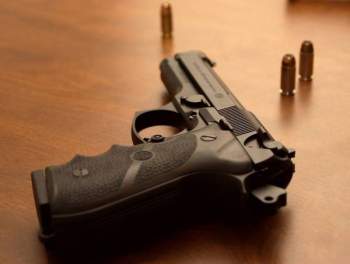
The Harm of Guns and Domestic Violence

Popular In Marriage
Common Law Marriage Louisiana Common Law Marriage Massachusetts Common Law Marriage Nevada Common Law Marriage Ohio Marriage Certificate Common Law Marriage Kentucky Free Marriage Records Putative Marriage Definition Common Law Marriage Alaska Common Law Marriage Oklahoma Common Law Marriage Mississippi Common Law Marriage New Mexico
Domestic violence against women is extremely detrimental to the health and the well being of the victim. Intimate partner abuse may not only cause the victim to sustain severe physical injury, but may also result in extensive psychological and emotional damage. Many individuals who subject their intimate partner to violence and brutality use weapons in order to inflict painful wounds and death.
One of the most common weapons that are used during incidents of domestic violence against women are firearms. About half of the females who are murdered with the use of a weapon are killed by a firearm. The large majority of these firearms are handguns. Most of these female homicides were committed by a male intimate partner. Studies indicate that in houses in which there are one or more guns, domestic violence against women is much more likely to occur.
Keeping a firearm in a home increases the chance that an individual will be killed due to gun violence. Researchers suggest that keeping a gun in the home may be a vital aspect of the intensification of nonfatal domestic violence against women to murder. The federal government acknowledged the correlation between firearm possession and domestic violence, and as a result established domestic violence laws which prohibit offenders from owning a gun.
The federal government has instated domestic violence laws which prohibit individuals who have had a restraining order or protection order filed against them from owning a gun. In many cases, victims of psychological abuse with petition a court for a restraining order against an individual who has threatened their safety or their well being. A protection order will ensure that the offender remains a specified distance away from the victim, and will forbid the perpetrator from harassing and threatening the victim. In many cases, the offender has threatened to inflict physical violence upon a victim and and poses a legitimate danger to the victim.
Domestic violence laws prohibit these perpetrators from possessing a firearm. In order for this law to be executed, the protective order must have been issued as the result of a court hearing, and the court must have concluded that the perpetrator is a threat to the physical health and well being of the victim. It is also a federal crime to transfer a gun to an individual who is subject to a restraining order.
Individuals who are issued firearms from government or law enforcement personal for use in police or military service are not subject to these restrictions while they are on duty. However, domestic violence laws will still prohibit these individuals from possessing a personal firearm or from retaining a gun while they are off duty. Beginning in 1996, federal domestic violence laws made it illegal for any individual who has been convicted of misdemeanor domestic violence against women to possess a firearm.
This legislation is enacted even if the individual was convicted of domestic violence before the law was established. Individuals who have been convicted to misdemeanor domestic violence crimes may never obtain a gun, not even for police or military service. It is a federal crime to transfer a firearm to an individual who has be convicted of domestic violence against women. An offender who violates any of these domestic violence laws may be penalized with up to ten years in prison.


















